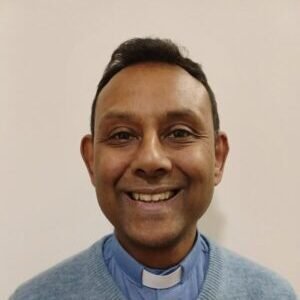Last week a young dual heritage Indian/ Sri Lankan curate, serving in a large West London church, came to see me. He came because I was the first Indian priest he had ever seen in the UK. I found this truly disconcerting. After all, we Indians are visible in most sectors of society. Yet in 2022, why are we not visible in the church? I cannot turn on my television without seeing a presenter of colour. The church is far behind other sectors.
Visibility is important. When I was vicar of a church in Leeds, the church was transformed from being largely white to a diverse congregation of over 18 nations. Previous research evidenced that growth in cultural diversity is a key factor in numerical growth in London Diocese. By being visible, we become role models; our experiences provide empathy and solidarity. We demonstrate to other people of colour that church leadership, lay and ordained, is attainable.
From Lament to Action, the Archbishops’ Anti-Racism Taskforce report, published last year, highlights “an alarmingly retrograde trend” as the number of UK minority ethnic Diocesan Bishops decreased to zero. When Dr Sentamu retired, there was no visibility, no black or Asian voice in the House of Lords, or as diocesan Bishop. Since then, Dr Guli Francis- Dehqani, has been appointed Bishop of Chelmsford; she speaks profoundly from her own experiences of persecution in Persia. The Church of England as the national church is by default a prophetic voice to the nation, challenging injustice as did the Old Testament prophets. One sole voice means there is still a long way to go.
Two weeks ago, two new bishops of colour were consecrated at St Paul’s Cathedral. There was a real sense of euphoria; what I noticed was the very high number of clergy and lay people of colour celebrating with them in solidarity. I hope this is a turning point. Still, I observe that the visibility of senior clergy of colour is largely confined to London and around, where much good work is going on. Huge swathes of the nation have no representation, and covert racism is played out.
On Tuesday, the General Synod of the Church of England unveiled a Racial Justice Report. It was presented by Lord Boateng who now chairs the Racial Justice Task Force. He described the failure of the Church of England to act meaningfully on its 25 past reports on racial justice as “chilling, it is wounding, it is a scandal, and it has to be addressed”. It is time for action, and action means change.
As the Archbishops have made racial justice a priority, I am hopeful. I am hopeful for a national church that is truly for all its people. In my book Holy Spirit Radicals, I elucidate how the first recorded church, in Antioch, had a very culturally diverse leadership, as they set out to disseminate Jesus’ Great Commission, making disciples of all nations.
In my own diocese of London, 40% of those recommended for ordained vocations are from global majority heritage. This gives hope to the church. I only pray that when they look for incumbent posts, they will not encounter unconscious bias, such as country of origin accents, names, and yes, skin colour. The report highlights positively that Theological Education Institutions are tackling racial justice proactively, to prepare the next generations of clergy for ministry in a rapidly changing, multi-ethnic nation.
People of colour often feel that they are Hidden Figures, as in the film of the same name; we work tirelessly for the kingdom of God, but we feel overlooked. After all, why are so few of us in senior positions? A presumption of incompetence? Last April the Archbishop of Canterbury conceded that the church has routinely “bullied, overlooked, undermined and excluded” black clergy and laity. He supports radical proposals to name and address institutional racism. Unless there is a deliberate strategy to root out institutional racism in the church, we cannot move forward.
From Lament to Action rightly sets ambitious targets, such as 30% of those on senior leadership programmes to be people of colour; similarly, representatives to the House of Bishops and co-opted members onto General Synod. This will make the rich and unique UK minority ethnic voices heard. On the other hand, the task of one single racial justice officer in each diocese will be rolling a stone uphill, unless the whole culture changes.
I am hopeful that this is not just another report, but that there must be much more intentionality, so that race is not marginalised to the back of the drawer, and pulled out occasionally to air, then slammed shut again.
Rev Canon Arani Sen, Rector of St Olave Hart Street, City of London





